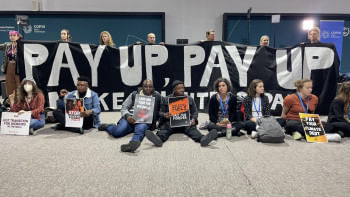House rent saw faster growth in Oct-Dec: BBS

House rent in Bangladesh rose by an average of 5.89 percent in the October-December period of the current fiscal year (FY), placing an additional burden on many lower and middle-income households, according to the Bangladesh Bureau of Statistics (BBS).
As per the House Rent Index (HRI), the growth of house rent increased by 0.03 percentage points in the second quarter of fiscal 2023-24 compared to the same period of the previous year.
The recent growth comes on the back of a steady decline in the preceding quarter, when the average hike in house rent stood at 6.81 percent.
The BBS released its updated HRI after compiling the cost of renting houses of three categories, namely concrete (pucca), corrugated iron sheet (semi-pucca) and mud houses (katcha and jhupri).
The mud house category saw the highest rent growth during the October-December period, with its related index number rising to 112.47, up by about 6.5 percent year-on-year, as per HRI data.
Similarly, the index of the corrugated iron sheet segment rose to 110.81 in the second quarter, up by some 6.4 percent year-on-year.
House rent is included in the non-food category of the consumer price index, according to BBS.
Nevertheless, the growing house rent is adding pressure on low-and-fixed income groups that are grappling with ongoing inflationary pressure in the country.
For example, Mostafizur Rahman, a private employee who lives in Dhaka's Khilgaon, said he was told that his house rent would increase by 14 percent to Tk 12,000 from January.
"This expense has increased the financial burden on my family of four," he added.
Baharane Sultan Bahar, president of the Bangladesh Bharatia Parishad (an association of renters), said landlords have the scope to oppress their tenants by increasing the rent at will.
This is because even though Bangladesh has its Premises Rent Control Act, 1991, there no implementation of the law, he added.
As per the Rent Control Act, if the rent of a house exceeds its standard point, then the extra amount shall not be recoverable (collectable) unless otherwise stated in any contract.
Section 3 of the law states that a controller and deputy controller are supposed to be appointed to specific areas, where they are empowered to decide the standard rent.
"But we did not see the implementation of such laws," Bahar said.
According to Bproperty, a local property solutions provider, house rent in the Basundhara Residential, Dhanmondi, Banasree and Rampura areas of Dhaka city saw the highest growth of 14 to 20 percent.
Likewise, the house rent in the Badda, Mirpur and Mohammadpur areas increased by 7 to 8 percent.
"The surge in Dhaka's house rent can be attributed to a confluence of factors, primarily driven by enhanced connectivity and improved amenities," said Khan Tanjeel Ahmed, a general manager of Bproperty.
As the city continues to undergo infrastructural transformation, the demand for well-connected residential areas is on the rise, contributing to the overall uptick in Dhaka's housing expenses.
"The development of an elevated expressway and the introduction of the metro rail have significantly impacted housing costs in various neighbourhoods in the capital," he added.
Talking to The Daily Star, SM Nazer Hossain, vice-president of the Consumers Association of Bangladesh, said the increased house rent has become a turning point for tenants amid the elevated inflation.
"At a time when low-and-fixed income groups area already in pain for the higher price of food and non-food items, increased house rent is pushing them to cut other costs," he added.
As such, many people have been forced to move their families back to rural areas in order to decrease expenses as their income has not increased at the same pace as that of house rent.
Besides, even the scope to borrow money from others had reduced as everyone is suffering from the inflationary pressure, leaving no alternative to cost cutting.
He also informed that people are suffering as the prices of consumer goods have increased abnormally over the past year.
"So, the government has to take effective initiatives to reduce inflation by thinking about the commoners," Hossain said.
He also said the house rent law is completely inactive at present as the authorities remain indifferent to implementing it.
"This could be because they do not want to annoy the landlords," Hossain added.
Kamal Mahmud, a former vice-president of the Real Estate and Housing Association of Bangladesh, said the hike in raw material and construction costs have contributed to making house rent costlier.
"As a result, house owners are charging higher rent from tenants. Subsequently, the number of sublets has been increasing over the years," he added.
However, Mahmud saw the possibility of further growth in house rent, especially in newly constructed buildings, due to the current price hike of building materials.
Construction costs rose by 6.46 percent in December, making it costlier to implement both public and private construction projects, according to the Building Materials Price Index of the BBS.
Towfiqul Islam Khan, a research fellow at the Centre for Policy Dialogue, said the higher growth of house rent is a manifestation of the spiral impact of inflation.
The BBS data showed that the growth rate of house rent for the "semi-pucca", "katcha and jhupri" categories are higher than that of the "pucca" category.
"So indeed, such a trend is doubly burdensome for disadvantaged households," he said.
Khan added that the increased demand for support for low-income households is very real but unfortunately, the government has very limited ability amid the current macroeconomic situation.


 For all latest news, follow The Daily Star's Google News channel.
For all latest news, follow The Daily Star's Google News channel. 



Comments